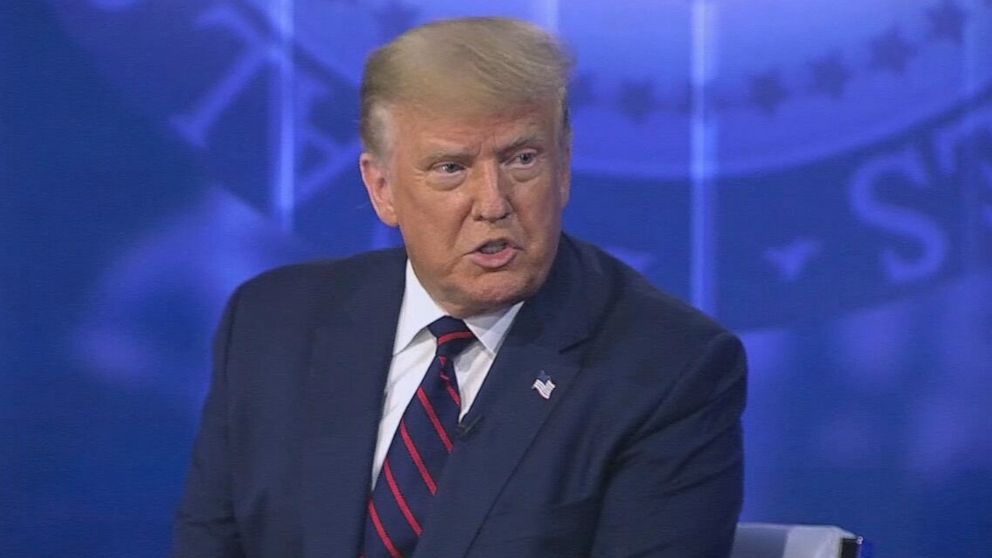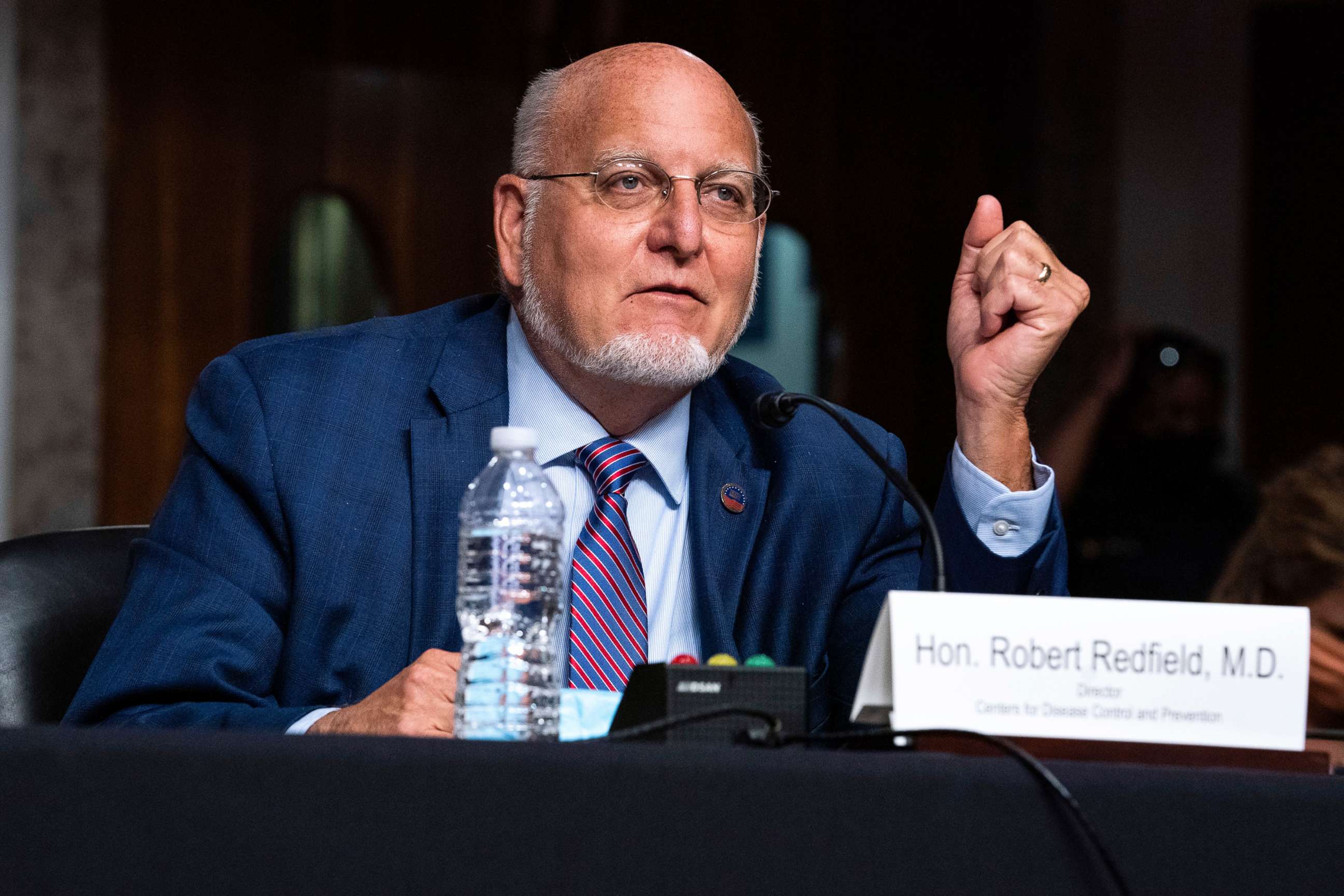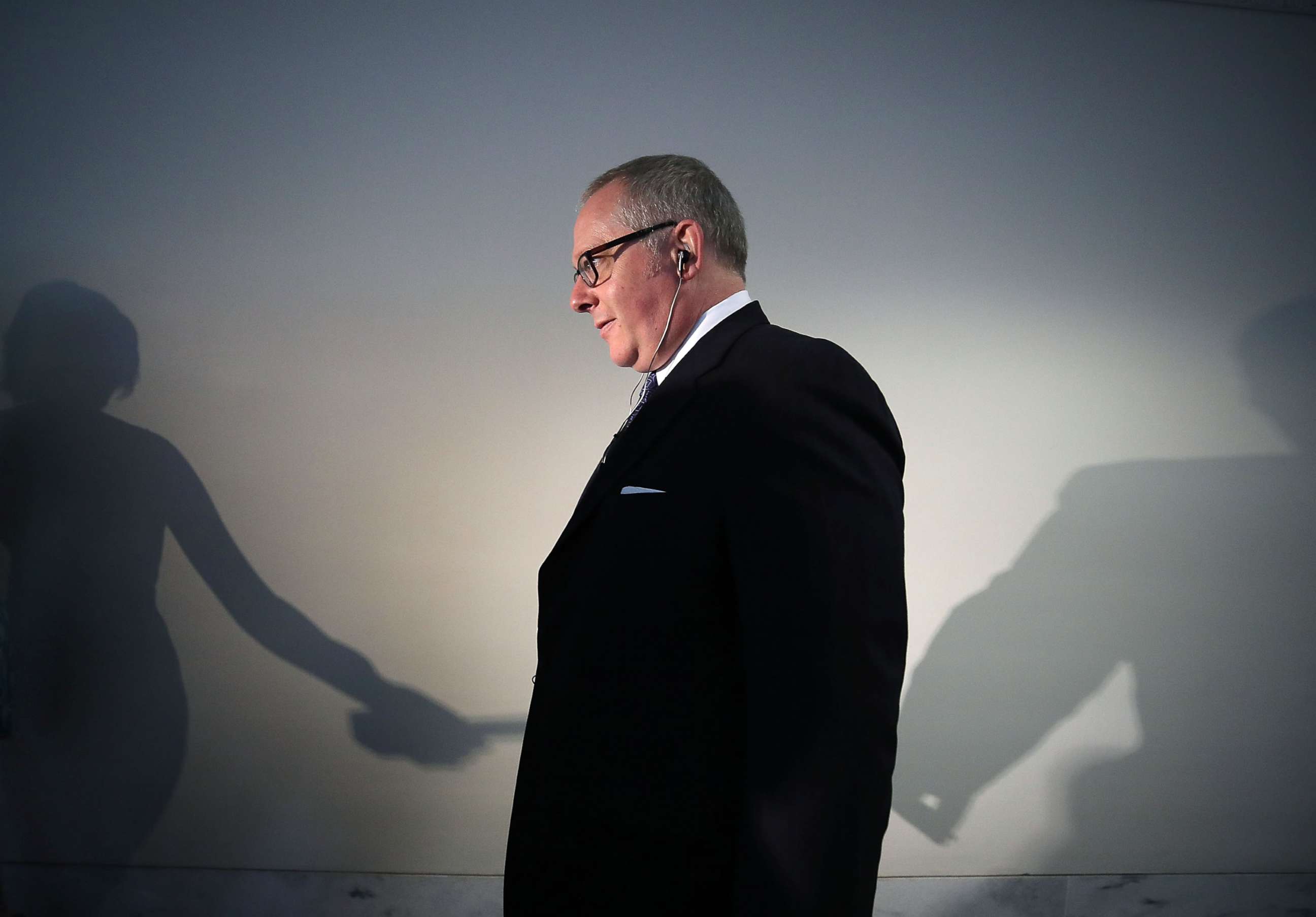Trump's rebuke of CDC director sows confusion on vaccine timeline
"I trust vaccines. I trust scientists. But I don't trust Donald Trump."
President Donald Trump's public rebuke of a top public health official is sowing confusion on the nation's vaccine timeline and reviving criticism of political meddling in the government's pandemic response.
Trump's challenge of Robert Redfield, head of the Centers for Disease Control and Prevention, in a White House press briefing on Wednesday comes just weeks ahead of the election and with much of the public already questioning the CDC's ability to stave off political interference.
The U.S. is expected in coming days to hit the 200,000 mark for deaths tied to COVID-19.
"We now see the undermining of the public's trust of our key institutions at the very moment we should be shoring up that trust," Rich Besser, president and CEO of the Robert Wood Johnson Foundation, wrote in an op-ed in Scientific American.
Democratic presidential candidate Joe Biden put it in more political terms.
"I trust vaccines. I trust scientists. But I don't trust Donald Trump. And at this point, the American people can't, either," he said Wednesday.

At a press conference with reporters, Trump knocked as a "mistake" Redfield's assessment that most Americans wouldn't see a vaccine until the middle of 2021. He also dismissed Redfield's suggestion that wearing a mask might even be more effective than the vaccine, because a vaccine is only effective if it produces an immune response whereas a mask provides an immediate physical barrier.
Redfield had said earlier that day it's possible vaccine doses would be available in November or December, but in limited supply.
"If you're asking me 'When is it going to be generally available to the American public?' so we can begin to take advantage of vaccine to get back to our regular life, I think we're probably looking at third, late-second quarter, third quarter 2021," Redfield told the Senate Appropriations Committee.
But Trump didn't like the timeline, bluntly telling reporters just hours later in a White House press briefing: "That's incorrect information."
The president said he even called the CDC director, a political appointee, after the Senate hearing to talk about it.
"I think he just made a mistake. He just made a mistake. I think he misunderstood the question probably," Trump said.

But the timeline laid out by Redfield is one widely cited by other health officials, and it's never been disputed.
The idea is that once a vaccine candidate or multiple candidates are found to be safe and effective -- likely sometime this fall, after clinical trials -- the U.S. immediately will have some 100 million doses on hand because of investments in advance production.
The first batches could be deployed in early 2021 to the most vulnerable populations, including older Americans in nursing homes, health care workers and the estimated 80 million people in the U.S. living with comorbidities. As a result, health officials and industry experts are anticipating the broader public likely would see the vaccine pop up at pharmacies and in doctor's offices closer to mid-year.
In Senate testimony on Wednesday, Redfield reiterated that timeline and estimated that even if a vaccine candidate were found today, it would take six to nine months to inoculate the entire country.
Mark Meadows, Trump's chief of staff, on Thursday went so far as to try to dismiss Redfield's credentials on vaccine delivery.
"The CDC is not developing the vaccines. It's actually pharmaceutical," Meadows said. "We're working with different troops. ... And so while Dr Redfield may have a timeline in mind, to my knowledge he hasn't had intimate discussions with those processes."
When asked if he indeed misspoke and whether the timeline had changed, a spokesman for Redfield said the director indeed had misunderstood the question in his testimony. Less than an hour later though, the spokesman asked to retract the statement and has not said since whether Redfield stands by his testimony.
A person familiar with the matter said the statement initially provided to ABC News that confirmed Trump's account of the vaccine timeline had not been properly cleared.
Redfield did, however, issue a statement on the importance of masks: "I 100% believe in the importance of vaccines and the importance in particular of a COVID-19 vaccine. A COVID-19 vaccine is the thing that will get Americans back to normal everyday life. The best defense we currently have against this virus are the important mitigation efforts of wearing a mask, washing your hands, social distancing and being careful about crowds."

The competing narratives came the same day a top communications official for Health and Human Services, Michael Caputo, announced he would take 60 days of medical leave. Earlier in the week, he had posted an online rant against government scientists, accusing them without evidence of "sedition" and suggesting that Trump supporters might need to arm themselves ahead of the election.
In clips of the video obtained by Yahoo News, Caputo specifically criticized the CDC's scientific studies on the pandemic.
John Brownstein, chief innovation officer at Boston Children's Hospital and professor at Harvard Medical School, said it's critical that the federal government and vaccine developers are precise – not political – about how they talk about vaccines now that development is close.
"We have to provide realistic expectations if we are to build public trust," said Brownstein, an ABC contributor.




